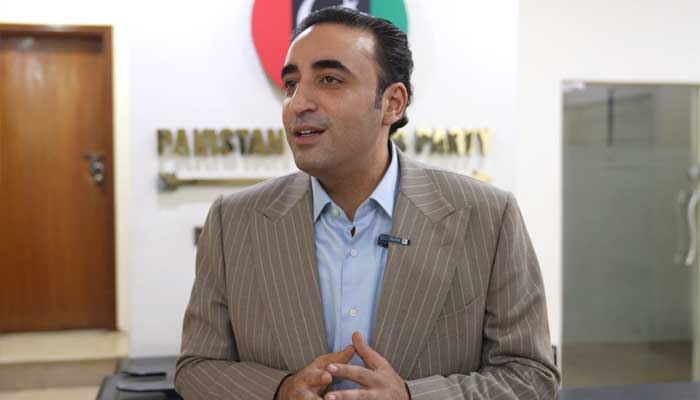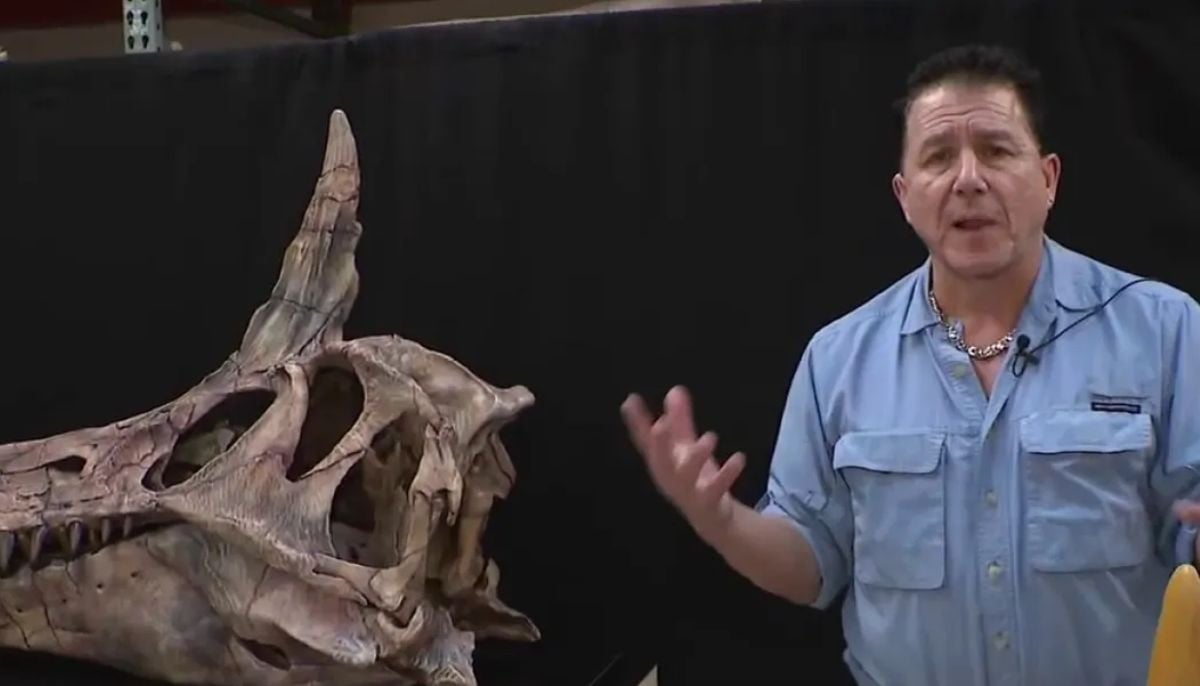Bilawal takes jibe at 'decision-makers' ignorance' about internet, VPN usage
“It does not make any difference to decision makers whether their internet speed is 3G, 4G or 5G,” says PPP chief
KARACHI: Pakistan Peoples Party (PPP) Chairman Bilawal Bhutto-Zardari has castigated the "decision-makers" for imposing restrictions on Virtual Private Networks, saying that they are unaware of the internet and VPN usage.
“It does not make any difference to decision makers whether their internet speed is 3G, 4G or 5G,” he said while speaking to journalists in Karachi on Thursday.
His statement came as the Pakistan Telecommunication Authority (PTA) began the process of blocking unregistered Virtual Private Networks (VPNs) in the country, as part of its efforts to “regulate internet security and ensure the safety of users”.
Bilawal pointed out that the incumbent government did not consult the PPP and sought input before imposing restriction on VPN.
“Two sectors, agriculture and technology, can play a massive role in Pakistan’s economy, including exports and financial growth,” he said, regretting that the government was making such policies which are causing damage to these sectors.
He noted that there are ways to secure the internet and police the "undesirable activity" on social media.
"Times have change. There was a time when the government needed to build infrastructure, roads, buildings and bridges. But now the infrastructure means to provide internet connectivity and enhance its speed so that the masses can play their role in this new economic space.”
He also claimed that Pakistan's internet speed is not 4G, it's 3G. On the other hand, he said, the authorities have slowed down its speed similar to what it was in the 90s.
'Judicial Commission'
Responding to a question regarding Judicial Commission of Pakistan (JCP), the PPP chief said he opted out of the top judicial body, reconstituted after the enactment of the 26th Constitutional Amendment, following the PML-N-led government's "failure to fulfil its promise" to ensure equal representation.
"I withdrew my name from the [JCP] in protest as the incumbent government did not fulfil the promise regarding equal representation made at the time of the [26th] amendment," he added.
In response to a question regarding the nomination of all the existing Sindh High Court judges to be the judges of constitutional benches, Bilawal said had he been present in the JCP meeting, he would have sought clarification over the “indifferent” attitude towards his province.
On Nov 8, the second JCP meeting endorsed the proposal put forth by SHC Chief Justice Muhammad Shafi Siddiqui that all the existing high court judges were nominated to be the judges of constitutional benches to clear the backlog of cases.
The PPP chief, while talking to journalists today, pointed out that a counter suggestion was put forward in a meeting that every sitting judge of the Supreme Court should be part of the constitutional bench.
“However, the majority decided against it and was of the view that the chief justice and head of the constitutional bench should be non-controversial,” he added.
Without divulging details, he said some judges had become habitual of politicking from the bench.
“They do not speak through their orders but give political statements. They do not rule in line with the Constitution and bend it for political purposes to grant themselves the executive powers,” he said. Given the history, he said, they decided to introduce the amendment.
Bilawal regretted that two separate systems cannot exist in the country simultaneously. “Such indifference is not appropriate.” However, he hoped that the decision could be changed in the upcoming meeting of the judicial commission.
'Judicial reforms'
When asked about the judicial reforms, the PPP chairman said reform is always an ongoing process and the 26th Amendment was the beginning of it.
However, he said, the struggle will remain uncompleted until the reforms are implemented in the lower or provincial judiciary.
“I have requested the Sindh chief minister to approach the chief justice of Pakistan (CJP), senior puisine judge, constitutional bench head, and Sindh chief justice and seek guidance for bringing reforms in the lower judiciary,” he said.
“We believe that the masses interact more with the lower judiciary,” he said, adding that they want to work on these reforms with judicial and legal input and consensus.
‘Estrangement with govt’
Responding to a question, he said "estrangement" with the federal government is out of question. "Right now, the respect is not being given in Centre and also no politics is being played," he said.
“We are sitting at treasury benches to provide moral support to the government,” he said, adding that his party never negotiate on every point "in good faith". However, he said, they want the agreement to be implemented.
“We would also feel disrespected, when a legislation is approved by the cabinet and tabled on the floor, and then a copy is being presented to us.”
Responding to a question regarding the announcement of more canals being constructed on Indus River, Bilawal said it was another example of a violation of agreement reached between the PPP and the PML-N.
"In that agreement, we concurred that the PPP and PML-N would chalk out the PSDP of all four provinces, in collaboration,” he said.
The former foreign minister noted that the canal project was greenlighted when he was busy with the 26th Constitutional Amendment. “The approval was given behind our back despite on-record reservations from the PPP members.”
-
Hidden ‘dark galaxy' traced by ancient star clusters could rewrite the cosmic galaxy count
-
Astronauts face life threatening risk on Boeing Starliner, NASA says
-
Giant tortoise reintroduced to island after almost 200 years
-
Blood Falls in Antarctica? What causes the mysterious red waterfall hidden in ice
-
Scientists uncover surprising link between 2.7 million-year-old climate tipping point & human evolution
-
NASA takes next step towards Moon mission as Artemis II moves to launch pad operations following successful fuel test
-
Spinosaurus mirabilis: New species ready to take center stage at Chicago Children’s Museum in surprising discovery
-
Climate change vs Nature: Is world near a potential ecological tipping point?












